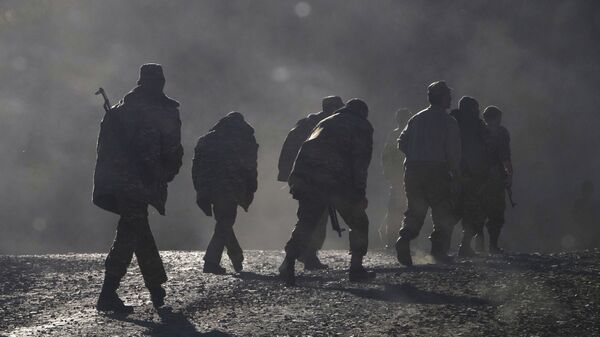On Tuesday, Armenian Prime Minister Nikol Pashinyan announced the signing of a deal to end the military conflict in Nagorno-Karabakh, a landlocked, disputed region surrounded by Azerbaijan but with an ethnic Armenian majority, Reuters reported.
The agreement was later confirmed by Azerbaijani President Ilham Aliyev.
“The signed trilateral statement will become a [crucial] point in the settlement of the conflict,” Aliyev said in an online meeting with Russian President Vladimir Putin.
According to Lazare, Azerbaijan has had the upper hand in the battle.
“They have more modern armaments, courtesy of Turkey and Israel. So they have been prevailing, and the situation on the ground has been deteriorating for Armenia,” Lazare told show hosts Michelle Witte and Bob Schlehuber.
The declaration came after six weeks of fighting in Nagorno-Karabakh between Azerbaijan and Armenia. Russia has long been involved in the dispute in the area, since it’s one of the co-chairs of the Minsk Group, a diplomatic effort to find a resolution to the conflict. On the other hand, Turkey has supported Azerbaijan militarily. Even earlier than that, Russia, Armenia and Azerbaijan were all republics in the Soviet Union, before that country dissolved itself in 1991.
According to Lazare, Israel has also played a role in the crisis.
“Israel has long been a major arms deployer to Azerbaijan, and Israel's relationship with Turkey has been up and down over the years, but they have been cooperative at many points in the past. And the reason is, Turkey values Israel as an arms manufacturer, and Turkey has shown its own abilities in that regard as well. So, these two forces find themselves teaming up with one another,” Lazare explained.
Under the new agreement’s terms, Armenia must withdraw from three areas of Nagorno-Karabakh, in addition to seven surrounding territories, by December 1.
That means that ethnic Armenians will be in control of the city of Stepanakert - the capital of the breakaway territory - and other areas mostly in the north of Nagorno-Karabakh, which strategically weakens Armenia’s political control in the region, Vox explains.
Also under the deal, Azerbaijan will be able to build a road that connects it with its exclave, Nakhichevan, which lies to the west, thus making it easier to transfer military supplies and economic goods between the two areas.
“The balance of power seems to have unquestionably shifted in Azerbaijan's favor, and so Armenians are upset and uneasy and insecure,” Lazare added. “I suspect this is a momentary pause in the conflicts.”

